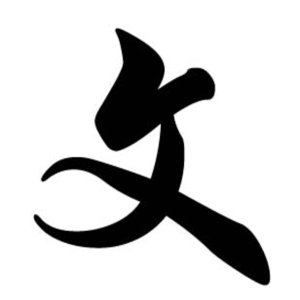
This podcast we take a look at a story from a strange Daoist classic, the Huainanzi 淮南子. The tale is called Old Man on the Border Loses his Horse 塞翁失馬. The story title is, itself a chengyu, that means something like you never know if something that seems unfortunate is actually fortunate.
Here is the original Chinese from the Huainanzi:
夫禍福之轉而相生,其變難見也。近塞上之人有善術者,馬無故亡而入胡。人皆吊之。其父曰:「此何遽不為福乎?」居數月,其馬將胡駿馬而歸。人皆賀之。其父曰:「此何遽不能為禍乎?」家富良馬,其子好騎,墮而折其髀。人皆吊之。其父曰:「此何遽不為福乎?」居一年,胡人大入塞,丁壯者引弦而戰,近塞之人,死者十九,此獨以跛之故,父子相保。故福之為禍,禍之為福,化不可極,深不可測也。
Lee's Translation:
Oh, the vicissitudes of fortune and misfortune, the two are born together, and it is hard to distinguish between the two. There was a man who was a good fortune teller who lived near the border. His horse ran into the barbarian's territory. Everybody said that this was unfortunate, but the man said, "Not so fast. Maybe this is fortunate." They waited several months and the horse returned, bringing with them a barbarian horse. Everybody said, this was fortunate. The man said, "Not so fast. Maybe this is misfortune." Their family was rich, they had good horses, their son rode well, but then he fell off the horse and broke his thigh. Everybody said that this was unfortunate, but the man said, "Not so fast. Mabye this is fortunate." After a year, a great barbarian army crossed the border, and all able-bodied men were given arms and sent to war. Those in the border region, nine out of ten died, it was only because of the son's broken leg that the family was spared this fate.
Thus, fortune becomes misfortune, misfortune becomes fortune. Change continues without end, these depths cannot be measured...
More Episodes
 2020-12-21
2020-12-21
 2020-12-17
2020-12-17
 2020-11-27
2020-11-27
 2020-11-16
2020-11-16
 2020-10-15
2020-10-15
 2020-09-15
2020-09-15
 2020-09-15
2020-09-15
 2020-08-15
2020-08-15
 2020-07-30
2020-07-30
 2020-06-27
2020-06-27
 2020-05-26
2020-05-26
 2020-04-18
2020-04-18
 2020-04-17
2020-04-17
 2019-12-11
2019-12-11
 2019-11-11
2019-11-11
 2019-09-12
2019-09-12
 2019-08-09
2019-08-09
 2019-07-08
2019-07-08
Create your
podcast in
minutes
- Full-featured podcast site
- Unlimited storage and bandwidth
- Comprehensive podcast stats
- Distribute to Apple Podcasts, Spotify, and more
- Make money with your podcast
It is Free
- Privacy Policy
- Cookie Policy
- Terms of Use
- Consent Preferences
- Copyright © 2015-2024 Podbean.com






